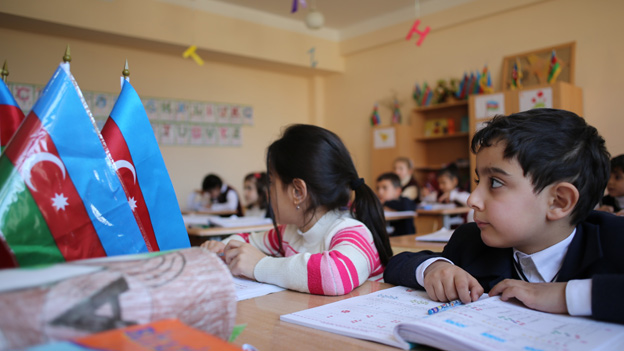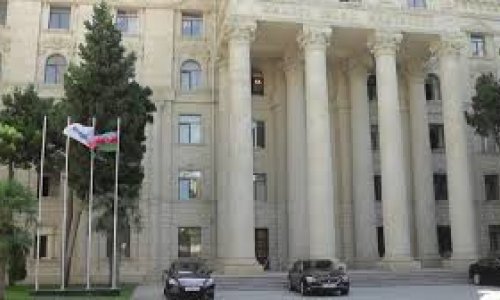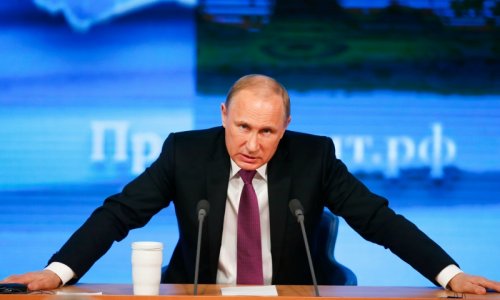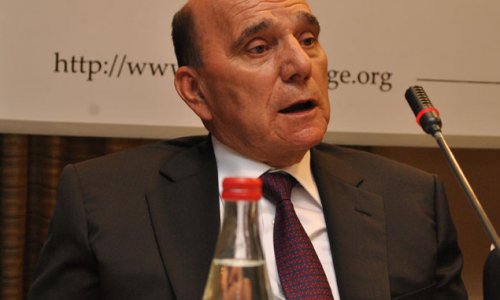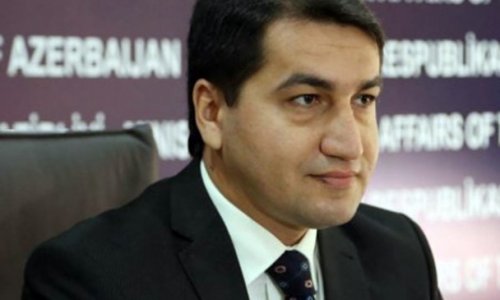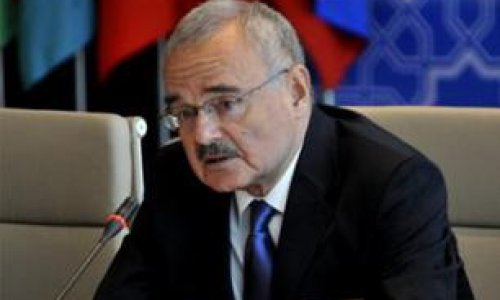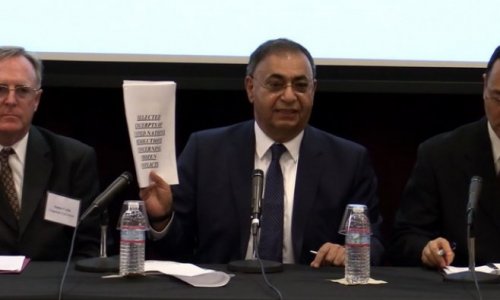The "frozen" Nagorno-Karabakh conflict is still simmering in the Caucasus, disrupting the lives of thousands of people. The BBC's Rayhan Demytrie reports from Azerbaijan on hardship near the front line.
Gulay likes to play outside, like any other seven-year-old. She rocks back and forth on a wooden swing. Playtime ought to be safe, but she lives in a conflict zone.
Gulay's home lies on the edge of the Azeri village of Gazyan, close to the line of contact with Armenian forces.
Shooting incidents are common here.
Her father Zamig Axundov points to a thick brick wall built by the Red Cross to help shield his home from bullets.
"We still can't use the second floor of our house - it's too dangerous. We are a family of five people and we all live in one room downstairs because it's safer," Zamig says.
Walk into any house in this village and people will show cracks in their buildings which, they say, come from nearby explosions of Armenian ordnance, or bullet holes in their walls.
Arch-enemies
Armenia and Azerbaijan fought a war over the mountainous territory of Nagorno-Karabakh in the 1990s.
The autonomous republic within Azerbaijan was populated mainly by ethnic Armenians. They wanted union with Armenia when the Soviet Union broke up.
As many as 30,000 people were killed in the war. Azerbaijan lost the territory as well as seven adjacent regions. Hundreds of thousands of people were displaced.
For centuries there was rivalry in the region between Christian Armenians and Turkic Muslims.
Little progress has been made towards a lasting settlement for Nagorno-Karabakh since a ceasefire deal reached in 1994.
It is often referred to as a "frozen" conflict, but military and civilian casualties are frequently reported.
Tensions escalated last summer, with skirmishes and casualties on both sides. In November, Azeri forces downed an Armenian helicopter. Three servicemen were killed.
Armenian authorities claimed they were on an unarmed mission, and vowed to retaliate.
Armenia's defence ministry spokesman, Artsrun Hovhannisyan, warned of consequences "that will be very painful for the Azerbaijani side and will remain on the conscience of the military-political leadership of Azerbaijan".
But Azerbaijan takes a different view.
"Two enemy helicopters attacked our positions. As a result one of the helicopters was shot down," says Azerbaijan's Deputy Defence Minister, Lt Gen Kerim Veliyev.
"We've sent our message that if such air actions continue, any enemy target will be destroyed. We are not eliminating the military option. If the enemy rejects a peaceful solution we can free our territories militarily. We are ready for that."
Peace deal?
Azerbaijan's leadership has repeatedly threatened to take back the lost lands. Last August, President Ilham Aliyev tweeted that "the flag of Azerbaijan will fly in all the occupied territories".
Peace negotiations mediated by the OSCE Minsk Group, co-chaired by Russia, France and the United States, have seen little progress. Meanwhile, oil-rich Azerbaijan has been spending heavily to boost its military capability.
The country's annual defence budget stands at $3.7bn (£2.5bn). Armenia's defence budget was $447m in 2013.
According to the latest Global Militarisation Index, published by the German think tank Bonn International Centre for Conversion (BICC), Armenia and Azerbaijan are among the top 10 most militarised nations in the world.
Both countries buy their weapons from Russia. But while there is a risk of renewed conflict, Russia's involvement makes the military option less likely, according to political analyst Arastun Orujlu of the East-West Research Centre in Baku.
"I don't think the Azerbaijani government is preparing for a military resolution of the Karabakh conflict. They are quite realistic. Armenia is a military ally of Russia at least for the next 48 years. It has two Russian bases on its territory," he said, referring to the long leases agreed for the bases.
However, Mr Orujlu says the Azeri authorities are watching the instability in Ukraine closely.
"Azerbaijan sometimes feels itself alone on an international level," he says.
"For supporting separatists in eastern Ukraine, Russia is getting strong [Western] sanctions. And Azeris are asking, 'Why doesn't Armenia get the same reaction from the international community?' That's what makes the Karabakh conflict more significant today."
New homes
On the outskirts of the capital Baku, new housing complexes are appearing for thousands of families displaced by the conflict.
Azerbaijan has one of the highest rates of internally displaced people (IDPs) in the world.
After years of people living in rundown Soviet-era buildings and tent cities lacking running water, the government launched a state programme to rehouse IDPs.
New apartment blocks give a sense of permanence to the status quo. But anyone in the street will tell you that they still dream of going home.
"The houses are really nice but we want to go back to our land as soon as possible," says Naringul Guliyeva, walking her grandson to a nearby newly built school.
There, the children learn to recite the names of the seven regions occupied by Armenia.
They are taught about their right to return - even if it will take war, or another generation of waiting, to achieve it.
(BBC News)
ANN.Az
Follow us !

